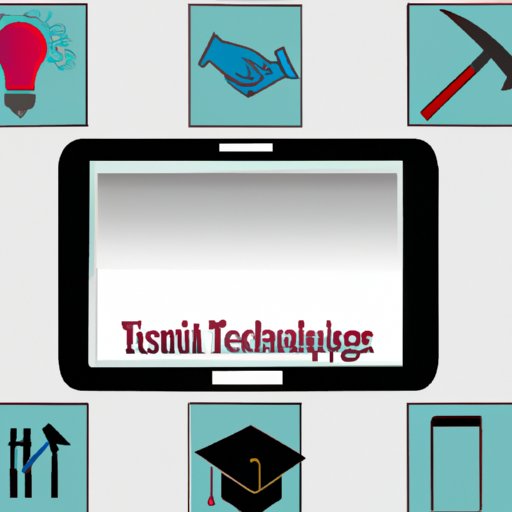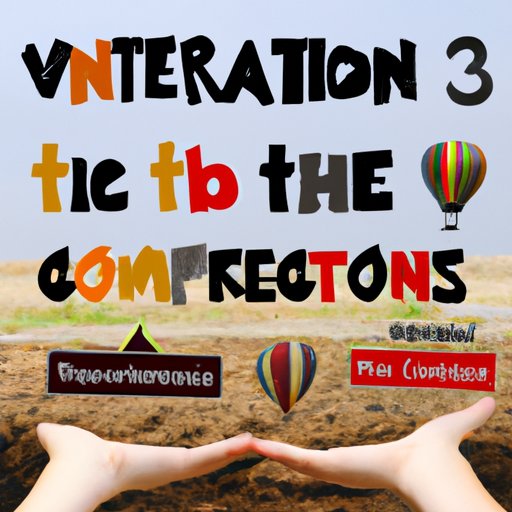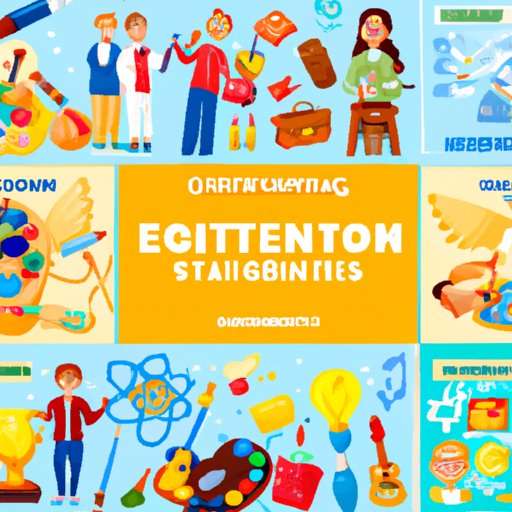Introduction
Gifted and talented students are those who possess superior intellectual abilities, have high levels of creativity, or exhibit advanced skills in a particular area. These students often have unique needs that require special attention and support in order to help them reach their full potential. However, supporting these students in the classroom can be challenging due to their diverse needs and capabilities. It is essential that teachers create an environment that is conducive to learning and allows these students to thrive.
There are many benefits to supporting gifted and talented students in the classroom. For one, it helps these students develop self-confidence and learn to take risks. Additionally, it can foster collaborative learning, which can help all students in the classroom succeed. Finally, it can provide these students with the opportunity to explore their passions and interests, further developing their skills and knowledge.
1. Create an environment that encourages creativity and critical thinking
Creating an environment that encourages creativity and critical thinking is essential for supporting gifted and talented students in the classroom. This can be done by providing students with open-ended problems to solve and encouraging them to come up with creative solutions. Additionally, teachers should provide opportunities for students to engage in debates and discussions, as this will allow them to practice critical thinking skills.
One way to encourage creative problem solving is to have students work on projects that involve research and exploration. This allows students to use their own ideas and experiences to solve problems. Additionally, teachers should provide students with a variety of materials to work with, such as art supplies or construction materials, as this will give students the opportunity to express themselves creatively.
Strategies for fostering critical thinking include having students analyze texts and evaluate evidence, as well as teaching them how to ask relevant questions. Teachers should also provide opportunities for students to discuss and debate topics, as this will help them learn how to think critically about different issues. Finally, teachers should challenge students to find solutions to complex problems, as this will help them develop their critical thinking skills.

2. Encourage collaboration and peer mentorship
Collaboration is an important part of learning, and it can be beneficial for gifted and talented students. By working together, students can share ideas and knowledge, which can help them better understand concepts and make connections between different topics. Additionally, it can be beneficial for students to receive feedback from their peers, as this can help them refine their skills and gain confidence in their abilities.
In order to encourage collaboration, teachers should provide students with activities that require teamwork. Additionally, they should provide opportunities for students to present their ideas to the class, as this will give them the chance to practice their communication skills. Finally, teachers should create an environment where students feel comfortable expressing their opinions, as this will help foster an atmosphere of collaboration.
Peer mentorship can also be beneficial for gifted and talented students, as it allows them to receive guidance from their peers. In order to develop peer mentorship, teachers can assign students to mentor groups, where they can offer advice and support to one another. Additionally, teachers can create opportunities for students to share their knowledge and experiences with the class, which can help them gain confidence in their abilities.

3. Offer challenging and engaging curricula
Gifted and talented students need to be challenged in order to reach their full potential. Therefore, it is important for teachers to provide challenging and engaging curricula that will push these students to think critically and stretch their abilities. This can be done by providing complex problems to solve, asking students to conduct research, or assigning projects that require creative thinking.
When creating engaging lessons, teachers should focus on making the material relevant and interesting to the students. Additionally, they should incorporate activities that involve movement and interaction, such as role-playing or group activities. Finally, teachers should provide students with a variety of materials to work with, as this will help keep them engaged and motivated.
Examples of challenging curricula include project-based learning, problem-based learning, and inquiry-based learning. Project-based learning involves students researching a topic and creating a presentation or product based on what they have learned. Problem-based learning requires students to identify a problem and come up with solutions. Inquiry-based learning involves students asking questions and exploring topics to find answers.
4. Provide access to resources and support
Gifted and talented students may need extra resources and support in order to reach their full potential. Therefore, it is important for teachers to make these resources available to students. Some types of resources that can be provided include books, websites, and online courses. Additionally, teachers should provide students with access to mentors or tutors who can help them with their studies.
In order to make resources available to students, teachers should create a library of books and other materials that students can borrow or access online. Additionally, they should create a list of websites and online courses that students can use to supplement their learning. Finally, teachers should provide information about mentors or tutors that students can contact for additional help.

5. Utilize technology and other tools to enhance learning
Technology can be a powerful tool for enhancing learning, especially for gifted and talented students. There are a variety of educational technology tools that can be used to engage students and help them better understand concepts. Examples of these tools include interactive whiteboards, online quizzes, virtual reality simulations, and video conferencing.
When using technology in the classroom, it is important to ensure that students are able to access the tools they need. Additionally, teachers should provide students with training on how to use the technology, as this will help them become more comfortable with it. Finally, teachers should provide students with opportunities to explore the technology and apply it to their learning.
6. Allow for individualized learning plans
Gifted and talented students often have unique needs and abilities, so it is important for teachers to provide them with individualized learning plans. These plans should take into consideration the student’s interests, strengths, and weaknesses, and should be tailored to their specific needs. Additionally, the plans should provide students with the opportunity to explore their passions and interests.
Strategies for creating individualized learning plans include setting goals for the student, providing resources and support, and tracking progress. Additionally, teachers should provide students with opportunities to reflect on their learning and identify areas where they need additional help. Finally, teachers should be flexible and willing to adjust the plans as needed, in order to best meet the student’s needs.

7. Give students opportunities to explore their passions and interests
Exploring passions and interests can be beneficial for gifted and talented students, as it allows them to learn new skills and gain knowledge in areas that they are passionate about. In order to give students the opportunity to explore their passions, teachers should provide them with resources and support. Additionally, they should create activities and assignments that allow students to pursue their interests, such as conducting research or creating projects.
Giving students the opportunity to explore their passions and interests can have many benefits. It can help them gain confidence in their abilities and discover new talents. Additionally, it can provide them with a sense of purpose and motivate them to work harder. Finally, it can help them develop valuable skills that will serve them in the future.
Conclusion
Supporting gifted and talented students in the classroom can be a challenging task, but it is essential for helping these students reach their full potential. By creating an environment that encourages creativity and critical thinking, encouraging collaboration and peer mentorship, offering challenging and engaging curricula, providing access to resources and support, utilizing technology and other tools to enhance learning, allowing for individualized learning plans, and giving students opportunities to explore their passions and interests, teachers can help these students succeed.
(Note: Is this article not meeting your expectations? Do you have knowledge or insights to share? Unlock new opportunities and expand your reach by joining our authors team. Click Registration to join us and share your expertise with our readers.)
